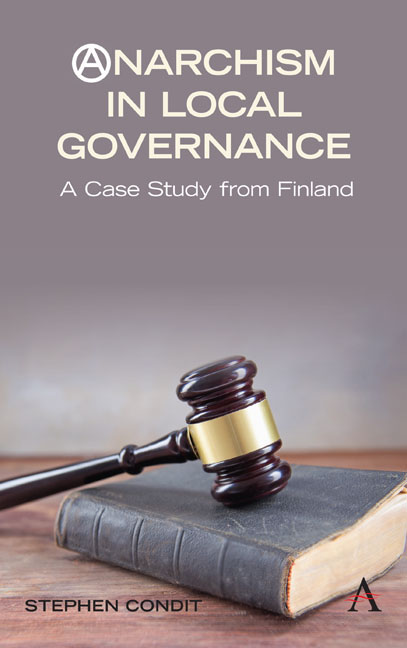Book contents
- Frontmatter
- Dedication
- Contents
- Acknowledgements
- Chapter One Introduction: The Prospects of My Situation
- Chapter Two Evoking Anarchism
- Chapter Three Municipal Possibilities of Anarchist Praxis
- Chapter Four The Impossible Ideals of Libertarian Municipalism
- Chapter Five A Municipal Expedient for Anarchists
- Chapter Six Latent Anarchism in Citizen Associations
- Chapter Seven An Equivocal Vindication
- References
- Index
Chapter Four - The Impossible Ideals of Libertarian Municipalism
Published online by Cambridge University Press: 06 September 2019
- Frontmatter
- Dedication
- Contents
- Acknowledgements
- Chapter One Introduction: The Prospects of My Situation
- Chapter Two Evoking Anarchism
- Chapter Three Municipal Possibilities of Anarchist Praxis
- Chapter Four The Impossible Ideals of Libertarian Municipalism
- Chapter Five A Municipal Expedient for Anarchists
- Chapter Six Latent Anarchism in Citizen Associations
- Chapter Seven An Equivocal Vindication
- References
- Index
Summary
I am attempting to hold the municipality of Savonlinna and my own career as councillor and citizen activist to the standards of some anarchist ideals. I am similarly attempting to hold these ideals up to the realities the municipality and I confront. But I have not yet crystallised the ideals in a coherent form. Anarchism has been presented as a set of potentialities and their entailed praxis cohered by several disciplining norms, most prominently self-governance, which themselves remain inadequately formulated. Perhaps this is as it should be. Anarchism is not, or need not be, a doctrine. It can be forced into doctrinal form only at the risk of violating its own strictures against domination, coercion and submission (Wilson 2014, 1– 13). Nevertheless, I envisage anarchist thought as both an origin of purposes for the municipality and a normative framework for assessing its justifiability, as well as indicating alternatives to it when its justifiability fails. My project demands an anarchist doctrine, but only as a conceptually coherent vision whose adequacy can be tested against the realities of the municipality and its civil society. To the extent that it is plausible, it may be a normative criterion for the municipality.
For this purpose, I turn to Murray Bookchin's doctrine of libertarian municipalism, or its less institutionally specific mode of communalism. In spite of its ambiguous relationship to anarchism, at times both affirmed and denied by Bookchin, it provides sufficient conceptual coherence of intrinsically anarchist ideals with sufficient relevance to the realities of the municipality that it may engage realities and the ideals with each other in order to test their ethical validity and practical efficacy. Like many anarchists of my generation, I have had a long and troubled but inspiring relationship with his work. He did not educe me to anarchism. Encounters with doctrinaire leftist authoritarianism on the Berkeley campus of the University of California in the mid-1960s sufficed for that. But when I came to do conceptual work on both anarchism and environmental philosophy, Bookchin loomed large in my perspectives. And when I undertook my political career, his theories of social ecology in general and libertarian municipalism in particular were a constant challenge to my own comprehension of my purposes.
- Type
- Chapter
- Information
- Anarchism in Local GovernanceA Case Study from Finland, pp. 131 - 186Publisher: Anthem PressPrint publication year: 2019



